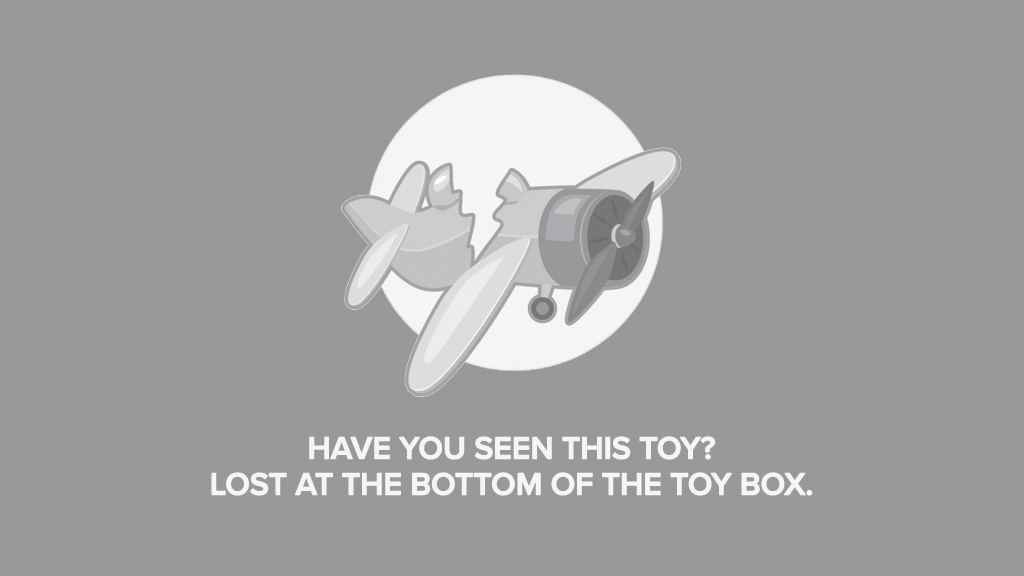This is an updated version of an article that originally appeared in the May/June 2019 issue of the Toy Book…
If no news is good news, then the few months following Toy Fair were decent — if not filled with a welcome, yet somewhat uncomfortable silence regarding trade talks between the U.S. and China. Following last year’s move to impose a 10% tariff on $200 billion in Chinese imports, companies and consumers were left hanging with the possibility of further tariffs looming on the horizon.
That was, of course, until May 10, when President Donald Trump instructed officials to move ahead and increase the duty to the long-threatened rate of 25% on the previously taxed imports.
At press time, the rate and categories are holding firm, but it’s inching toward the bigger threat that “list four” goes into effect — including thousands of new items that will sweep up nearly every Chinese import not previously hit with the 25% duty. Should that happen, not only will the toy industry be hit hard, families in the U.S. will face a nearly across-the-board cost of living increase.
If anyone doubts that the increased cost for importers will be passed on to consumers, they need to look no further than to the world’s largest retailer for an answer. “Increased tariffs will lead to increased prices for our customers,” says Brett Biggs, executive vice president and chief financial officer at Walmart, during the retailer’s first quarter earnings call. Costco’s chief financial officer, Richard Galanti, echoed the same thing on his company’s earnings call, stating “At the end of the day, prices will go up on things.”
CAPITAL VS. CONSUMER GOODS
Thus far, most of the items subject to an additional duty are in the capital goods range — raw materials being imported for use to create finished goods. Quite simply, consumers haven’t yet taken much of a noticeable hit, but the impact is coming. The increased cost of overseas materials is causing an unintended ripple effect that the administration may not fully grasp.
William Hare is president of Little Colorado, a company that produces handcrafted, heirloom-quality toddler furniture, including toy boxes, bookcases, and table and chair sets. At its facility in Denver, Little Colorado typically employs 16 to 20 people, and the company has raised wages 16% over the past few years. Despite producing American-made products with an American workforce, Little Colorado is feeling the tariff pinch.
“Raw materials have been going up for the past 18 months,” Hare explains. “Tariffs are only part of it. Pine and Baltic birch are also affected by worldwide demand, which is high — so I am told.”
 Even U.S.-based companies that have been sourcing raw materials domestically for years are getting hit on the bottom line, and every company’s approach on how to handle it differs. The increased cost of certain types of Chinese steel and aluminum, for example, is creating demand for U.S. product, which, in turn, is raising the price of the domestic supply. Longtime customers who supported U.S. suppliers are now getting priced out by some of the very companies who were previously buying from overseas. One of the most well-known examples in the toy industry is Crazy Aaron’s Putty World, whose putty is shipped packaged in metal pucks, which are domestically sourced.
Even U.S.-based companies that have been sourcing raw materials domestically for years are getting hit on the bottom line, and every company’s approach on how to handle it differs. The increased cost of certain types of Chinese steel and aluminum, for example, is creating demand for U.S. product, which, in turn, is raising the price of the domestic supply. Longtime customers who supported U.S. suppliers are now getting priced out by some of the very companies who were previously buying from overseas. One of the most well-known examples in the toy industry is Crazy Aaron’s Putty World, whose putty is shipped packaged in metal pucks, which are domestically sourced.
When it comes to metals, the tariff impact has already been felt by U.S. manufacturers outside of the toy industry, with companies such as Stack-On Products, Mid-Continental Nail, and Caterpillar taking hits — resulting in the loss of jobs for American workers. Another company, Element Electronics — which had been working to bring television manufacturing back to the U.S. — had to layoff 126 workers in South Carolina, thanks to the tariffs.
An added element of danger comes from any company that may take an opportunist approach to the tariffs by attempting to build profit into the already inflated cost. This is a discussion that picked up steam during Toy Fair season, when tariffs were still holding firm at 10% and toys were not yet on the table.
“It’s not just lumber — hardware is all up 10% to 20%, and in this case they claim it is tariff-related, but I think that is as much an excuse as a solid reason,” says Hare, whose company depends on metal hardware to bind its wooden furniture. “In other words, they are reaching for a larger increase than the actual tariff impact.”
“There is no room to make profit on potential additional cost specifically related to a tariff,” says Jeremy Padawer, co-president and partner at Wicked Cool Toys, recommending that companies pass on the tariff alone. “No retailer or manufacturer should in good faith attach any profit margin onto tariffs,” he says.
Walmart’s Biggs stresses the need to find balance between doing right by both customers and shareholders, noting the complexity on the retail side. “It’s very specific to individual items and categories, so it’s challenging, if not impossible, to make broad statements,” he said, noting that Walmart merchant teams have been instructed to begin mitigation strategies to lessen the tariff impact.
Toymakers, like retailers, should be taking a serious look at alternative sourcing options for the long term — although that could also be challenged thanks to the volatile and unpredictable nature of the current administration. Even before the tariff threat, some companies had already been switching manufacturing to Mexico, but now there’s a threat there as well. On June 10, the U.S. plans to enact a 5% tariff on all goods from Mexico — with a threat to keep raising it as punishment for “illegal immigration.”
“While Congress and the administration together must act to fix our broken immigration system, a further misuse of tariffs now focused on Mexico is the wrong approach,” says Steve Pasierb, president and CEO of The Toy Association. “Passage of the United States-Mexico-Canada Agreement is vitally important to our nation, our workers, and future economy, meaning it must be held separate and distinct, without complications from the ongoing failure to deal with what is truly a humanitarian crisis. We need sensible, benevolent immigration reform and we need fair and free trade with our neighbors.”
LOOKING AHEAD TO THE HOLIDAYS
While uncertainty still hovers, if there’s a silver lining for now, it may be that many toys are already at sea, and accelerated shipments may get holiday toys into the U.S. before any new tariffs take effect. The National Retail Federation expects ports to remain unusually busy as we head into the summer months.
Still, the administration continues to put forth a message that “China pays the tariffs,” and now “Mexico pays the tariffs.” As any importer knows, that is completely false.
“To be clear, any claims that tariffs are or will be paid for by China is a lie,” says Pasierb. “China is not paying these tariffs; rather, American families and U.S. companies are, through higher consumer prices and decreased profits.”
Let’s hope that proper deals between the U.S., China, and Mexico happen sooner rather than later. In a trade war, everyone stands to lose, and many already have.
An earlier version of this article originally appeared in the May/June 2019 issue of the Toy Book.

